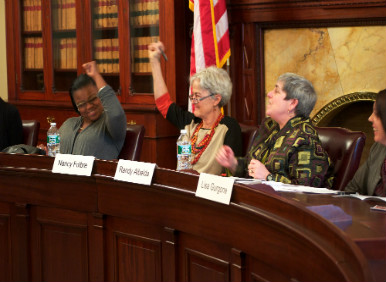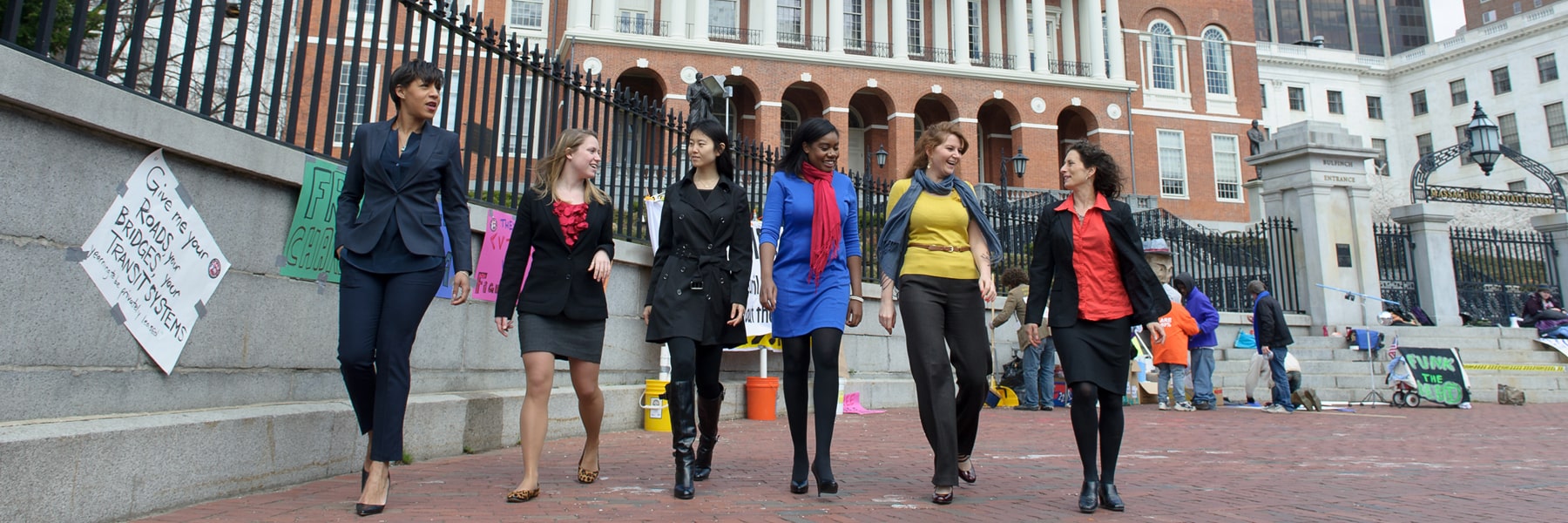- Home
- Center for Women in Politics & Public Policy
Advancing Diverse Women's Leadership for a Better World for All
Recognizing the talent and potential of women from every community, and guided by the urban mission of an intellectually vibrant and diverse university in the heart of Boston, the Center for Women in Politics & Public Policy (CWPPP) seeks to expand the involvement of women in politics and policies that affect them, their families, and their communities.

Become an Agent of Change Through the Gender Leadership Public Policy Program
Are you passionate about social justice and want to pivot your career to public policy, advocacy, or politics? Consider the Gender, Leadership & Public Policy (GLPP) Graduate Certificate program with an MPA option.
Support Our Work
Honor our founder Betty Taymor's vision of diverse women's political leadership with a gift to support CWPPP's intersectional and empowering work. The Betty Taymor Scholarship Fund enables students with limited financial means to attend the Gender, Leadership & Public Policy graduate certificate program.
Center for Women in Politics & Public Policy
McCormack Graduate School
UMass Boston
100 Morrissey Blvd.
Boston, MA 02125-3393
Location: Healey Library, 10th Floor
Phone: 617.287.5541
Fax: 617.287.5566
Email: cwppp@umb.edu
Gender, Leadership & Public Policy Graduate Certificate
Phone:617.287.6785
Fax: 617.287.5566
Email:glpp@umb.edu
Announcements
- Check out the latest from the UMass Boston Early Education Cost and Usage Simulator (CUSP) Project! Addressing the Cliff-Effect Problem in Massachusetts Legislation to Expand Affordable Quality Child Care and Early Education
- Ready CWPPP’s new report on how paid family and medical leave became a reality in Massachusetts offers lessons for tackling complex policy issues in the Commonwealth and beyond
The center is affiliated with the McCormack Graduate School of Policy & Global Studies.
